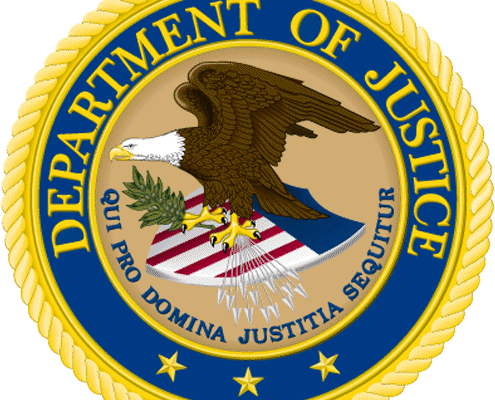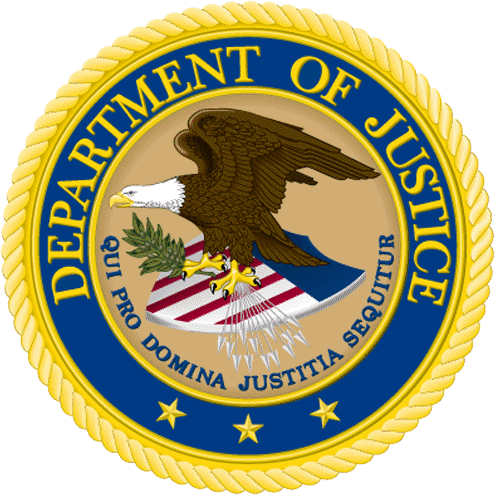Tag Archive for: Jeffrey Kaplan

2016 Collaborators in the News: A Year of Many Achievements
Blog 2016 was a year of many achievements for our growing collaborator network. We invite you to browse a highlight list of the research, articles, appearances and talks that helped advance our mission and promote a greater understanding of ethics, decision making, and ethical systems design.
2016 was a year of many achievements for our growing collaborator network. We invite you to browse a highlight list of the research, articles, appearances and talks that helped advance our mission and promote a greater understanding of ethics, decision making, and ethical systems design.
Browse our collaborators and their highlights and achievements from this year >>

Featured Collaborator for April: Jeffrey Kaplan
BlogInterview with Jeffrey Kaplan, partner in the Kaplan & Walker LLP law firm in Princeton, New Jersey
 What are your main areas of research /writing?
What are your main areas of research /writing?
I am principally a practitioner - in the compliance and ethics (“C&E”) field - rather than a professional researcher, and I certainly have not conducted any experimental research. I have done survey research – for the Conference Board (on the role of corporate directors in promoting C&E and on shortfalls in US government enforcement policy vis a vis C&E) and for the Ethics & Compliance Initiative (the “ECI,” which used to be called the ECOA) on conflicts of interest and various C&E program practices. Also, for the past four years I have been assembling and analyzing cases and articles about conflicts of interest (“COIs”) for a blog which looks at various COI issues across varying industry contexts (e.g., what types of interests are cognizable for COI purposes or when should a waiver be permitted) I hope at some point to turn these posts into a book about all things COI-related.

Is Political Ideology a Compliance and Ethics Risk?
Blog Cross posted with permission from ES Collaborator Jeffrey Kaplan's Conflict of Interest blog
Cross posted with permission from ES Collaborator Jeffrey Kaplan's Conflict of Interest blog
In a post last week on the Harvard Law School Forum on Corporate Governance and Financial Regulation, Danling Jiang, Associate Professor of Finance at Florida State University, summarizes a recent article she authored with Irena Hutton, Associate Professor of Finance at Florida State University; and Alok Kumar, Professor of Finance at the University of Miami: “Political Values, Culture, and Corporate Litigation,” which was published in the latest issue of Management Science and which “examine[s] whether the political culture of a firm defines its ethical and legal boundaries as observed by the propensity for corporate misconduct.”
In a post last week on the Harvard Law School Forum on Corporate Governance and Financial Regulation, Danling Jiang, Associate Professor of Finance at Florida State University said of recent research, “Using one of the largest samples of litigation data to date, [they] show that firms with Republican culture are more likely to be the subject of civil rights, labor, and environmental litigation than Democratic firms, consistent with the Democratic ideology that emphasizes equal rights, labor rights, and environmental protection. However, firms with Democratic culture are more likely to be the subject of litigation related to securities fraud and intellectual property rights violations than Republican firms whose Party ideology stresses self-reliance, property rights, market discipline, and limited government regulation.”
This is interesting – if not necessarily surprising – stuff, and particularly so in an election year. But does it bear on the work of C&E professionals? And does it have anything to do with conflicts of interest?
 https://www.ethicalsystems.org/wp-content/uploads/2015/12/Head-shots_MONTAGE.jpeg
1200
739
Jeremy Willinger
https://ethicalsystems.org/wp-content/uploads/2020/04/ES-logo-final-white.gif
Jeremy Willinger2015-12-11 14:48:052020-03-26 16:58:122015 Collaborators in the News: A Year of Many Achievements
https://www.ethicalsystems.org/wp-content/uploads/2015/12/Head-shots_MONTAGE.jpeg
1200
739
Jeremy Willinger
https://ethicalsystems.org/wp-content/uploads/2020/04/ES-logo-final-white.gif
Jeremy Willinger2015-12-11 14:48:052020-03-26 16:58:122015 Collaborators in the News: A Year of Many Achievements
Point-of-Risk Compliance
BlogThis piece is cross posted from ES collaborator Jeffrey Kaplan's "Conflicts of Interest" blog with permission.
Marketers have long known that “point-of-sale” display of products can be a powerful advertising tool. But can its logic be put to work for promoting compliance and ethics?
I was recently asked by a client to fill out a vendor information form and noticed that in addition to seeking information from vendors the form required the employee proposing the hiring to certify that any conflict of interest involving the vendor had been disclosed and okayed by management and the C&E officer. While I know that many companies have some form of COI certifications (see prior posts), I can’t recall having seen one on a vendor information form of this sort before – even though the common sense of such a “point-of-risk” compliance approach seems pretty obvious. Indeed, it is hard to think of any reason why a company wouldn’t do this.

A Dream Remit For the New DOJ Compliance Counsel
Blog Designing ethical systems is about having the right policies and programs in place- as well as the right people. Recently, the Department of Justice took a needed step forward by retaining a new full-time expert in compliance programs for their prosecution team. ES collaborator Jeffrey Kaplan, of Kaplan & Walker, LLP explains in a new Conflicts of Interest blog entry, cross posted below, how the new hire will allow the government to advance not only their understanding of how to strengthen and evaluate organizational compliance programs, but how the DOJ can leverage this position to put forth an agenda that highlights positive actions in the field.
Designing ethical systems is about having the right policies and programs in place- as well as the right people. Recently, the Department of Justice took a needed step forward by retaining a new full-time expert in compliance programs for their prosecution team. ES collaborator Jeffrey Kaplan, of Kaplan & Walker, LLP explains in a new Conflicts of Interest blog entry, cross posted below, how the new hire will allow the government to advance not only their understanding of how to strengthen and evaluate organizational compliance programs, but how the DOJ can leverage this position to put forth an agenda that highlights positive actions in the field.

2014 Highlights from Our Collaborators
Blog

